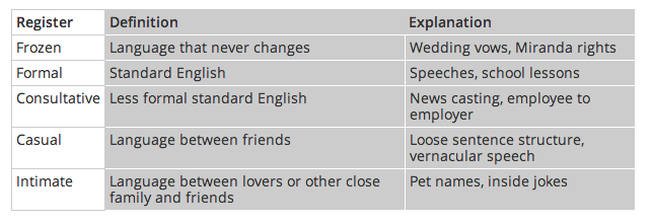a. From the video that I just watched, I learned that there were loads of English accents around the world and it also depends upon the speaker’s voice, accent and speech patterns and rhythms. Well, Americans and the British clearly speak the same language, but there are still differences. According to my observations, Americans usually pronounce every “r” in a word, while the British tend to only pronounce the “r” when it’s the first letter of a word. There are some words that the other side can’t pronounce while the others can. British people and American people can always understand each other – but there are a few notable differences between British English and
 American English. Some words have different meanings, although they pronounced it the same but on the other side it has different meaning. English does not have different pronouns for addressing others in different registers. The video elaborated how the English accent of British is pronounced differently from American and also this is not only for the American and British accents because there are wide varieties of English accents around the world. In order for us to fully understand the language, we should try to listen to different accents as much as possible just like on the video. I’m not saying that one accent is better or worse than any other, but it’s cool and fun to hear how somebody speaks differently, even though they’re using the same language. We should always remember that we should respect our differences for we could learn from it.
American English. Some words have different meanings, although they pronounced it the same but on the other side it has different meaning. English does not have different pronouns for addressing others in different registers. The video elaborated how the English accent of British is pronounced differently from American and also this is not only for the American and British accents because there are wide varieties of English accents around the world. In order for us to fully understand the language, we should try to listen to different accents as much as possible just like on the video. I’m not saying that one accent is better or worse than any other, but it’s cool and fun to hear how somebody speaks differently, even though they’re using the same language. We should always remember that we should respect our differences for we could learn from it.
 American English. Some words have different meanings, although they pronounced it the same but on the other side it has different meaning. English does not have different pronouns for addressing others in different registers. The video elaborated how the English accent of British is pronounced differently from American and also this is not only for the American and British accents because there are wide varieties of English accents around the world. In order for us to fully understand the language, we should try to listen to different accents as much as possible just like on the video. I’m not saying that one accent is better or worse than any other, but it’s cool and fun to hear how somebody speaks differently, even though they’re using the same language. We should always remember that we should respect our differences for we could learn from it.
American English. Some words have different meanings, although they pronounced it the same but on the other side it has different meaning. English does not have different pronouns for addressing others in different registers. The video elaborated how the English accent of British is pronounced differently from American and also this is not only for the American and British accents because there are wide varieties of English accents around the world. In order for us to fully understand the language, we should try to listen to different accents as much as possible just like on the video. I’m not saying that one accent is better or worse than any other, but it’s cool and fun to hear how somebody speaks differently, even though they’re using the same language. We should always remember that we should respect our differences for we could learn from it.
b. English is the most widely spoken language in the United States and is the common language used by the federal government. British English is the standard dialect of English language as spoken and written in the United Kingdom. English has always been one of the official languages of the Philippines and is spoken by more than 14 million Filipinos. It is considered as a major subject and is taught in the Philippines from grade one to college and is the medium of instructions in many schools. It is the language of commerce and law, as well as the primary medium of instruction in education. English is widely spoken and is the primary language in business communication. It is the official language of many countries and spoken by around million people across the globe. Being able to speak English is not just about being able to communicate with native English speakers; it is the most common second language in the world. Through proper knowledge in English it helps a country to be more globally competitive.
c.
c.
4
|
3
|
2
|
1
| |
1. I enjoy listening to people from other cultures
|
ü
| |||
2. I am aware that I can offend the feelings of people belonging to other linguistic and cultural environments.
|
ü
| |||
3. I apologize whenever I hurt the feelings of people from other cultures.
|
ü
| |||
4. I insist on my own views and beliefs even if I am aware that cultures vary significantly.
|
ü
| |||
5. I go out of my way to adjust to the culture of other people.
|
ü
| |||
6. I am aware that no culture is superior or inferior.
|
ü
| |||
7. I am aware that all linguistic and cultural environments are equal.
|
ü
| |||
8. I am aware that all linguistic and cultural environments should be respected.
|
ü
| |||
9. I can easily shift from one language register to another when speaking depending on the communication situation.
|
ü
| |||
10. I can easily shift from one language register to another when writing depending on the kind of readers that I have.
|
ü
|
